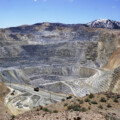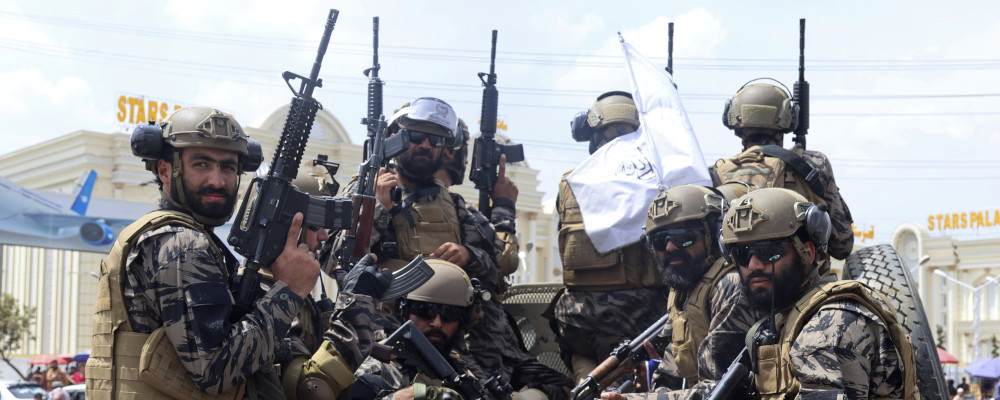My father worked for United Airlines for more than 25 years. On September 11th, 2001, he was a supervisor for United at Vancouver International Airport.
The 20th anniversary of 9/11, which we commemorated last month, prompted me to ask my father to speak to a group of high school boys about that day and its aftermath from his vantage point.
I felt this would be a valuable occasion for my father to share his reflections on that difficult episode with others. After he accepted my invitation, I realized that I had never asked my father, in the twenty years since 9/11, for a full debrief of how that day had affected him. The two of us are close. I sensed this event would draw us even closer.
It also dawned on me that this would be an important talk for his audience. None of these boys were alive on 9/11. They did not live through the horrors of that day or experience the revolutionary changes to our societies and daily lives that followed.
My father’s talk captivated the boys. As he recounted how 9/11 unfolded for him with riveting detail, he became emotional over the loss of his colleagues who perished in the two United aircraft that were hijacked that day. To him, they were not just colleagues. He called them family.
He conveyed the prevailing sentiment that rose from the ashes and rubble: a resolve to punish the culprits and prevent future terrorism. He explained how countless individuals in the airline industry — himself included, though he did not laud his efforts — stepped up to meet the existential threats to this industry after 9/11.
I have always deeply admired my father’s professionalism. United and its customers are fortunate he was on the payroll on 9/11, and every other day he came to work.
On our drive home, the discussion turned to Afghanistan. We, like many around the world, have watched in disbelief as the same band of thugs who once tyrannized Afghans and harboured the masterminds of 9/11 reclaimed control of the country with shocking ease.
The rule imposed by the Taliban is barbaric. They suppress civil liberties, violate the basic human rights of women and minorities, and inflict cruel and unusual punishment. We recently learned that the public display of executed Afghans, done to deter others from committing the acts for which these individuals were executed, has resumed. This is a wicked regime, and these features of it are surely just the tip of the iceberg.
It is outrageous that these bandits were effectively permitted to waltz back into the halls of power. It has also been infuriating to watch world leaders try to save face. Seeing U.S. President Joe Biden pat himself on the back for completing an emergency withdrawal after the Taliban reconquered Afghanistan was as pitiful as it was offensive.
During the recent Canadian election campaign, party leaders vowed to not abandon the Afghan people. There have been few concrete indicators of how we plan to honour this lofty promise. As I have thought about 9/11 and my father’s talk in recent weeks, three ideas have come to mind.
First, nations must be unequivocal in their condemnation of the Taliban and steadfast in their refusal to recognize them as the official government of Afghanistan. Merely stating, as Canada has, that there are “no plans” to recognize them is not enough. I cannot help but think of Canadian soldiers who fought this regime and the families of the ones who did not come home. It is bad enough that we did little to stop or even slow the advance of the Taliban. This lukewarm statement by our government only adds insult to injury.
Some have suggested that the new regime is more moderate than the old one. Even if there is any truth to that notion, graduating from the middle ages to the later middle ages in terms of barbarism is far from progress. I’m all for benefit of the doubt and second chances, but with the Taliban we have seen this horror movie before — and it looks like we are already watching a true sequel.
Without clear and compelling evidence of a radical conversion on respect for human dignity and fundamental rights, the international community should not even be entertaining the thought of recognizing the Taliban. Recently, the United Nations and the Taliban have been talking. This should be a short conversation: either enter the 21st century or get out of town.
Second, the international community should take steps to weaken the capacity of the Taliban to tyrannize. In addition to sanctions and freezing assets, the same coalition that fought the Taliban in the wake of 9/11 should continue the fight through recourse to cyber interference. If measures of this sort are sufficiently surgical so that they do not exacerbate the current plight of the Afghan people, I see no reason why we should not seek to destabilize the Taliban with these means.
Third, this same international coalition — and other countries who wish to join it — should use conventional military force if the Taliban again renders Afghanistan a haven for terrorist groups. If the Taliban so much as turn a blind eye in this regard, this coalition should strike terrorist sites in Afghanistan and pursue terrorist leaders no matter their location in the country.
There are complex issues and considerations orbiting around these proposals that are admittedly above my pay grade. For all I know, aspects of these proposals are already being actively considered. I hope these proposals will keep the conversation alive and inspire action to weaken the Taliban and create the necessary conditions for toppling this regime — again.
If the Canadian government is reluctant to confront the Taliban right now due to concerns about public support for re-involving Canada in Afghanistan, I doubt there is reason to worry. As my father and I drove home after his talk to those high schoolers, he expressed a sentiment that I imagine is widespread and strongly held across Canada and throughout the world.
My father, now retired from United and in his sixties, said — with sincerity and conviction — that he might be too old, but he’d fight the Taliban himself if he could.
That’s the kind of resolve we need now. It’s the kind of resolve we need always. We must never forget 9/11, and we must do all we can — while always respecting human dignity and human rights — to prevent other dates that will live in infamy from coming to pass.
We must do more for Afghanistan. The Afghan people deserve the free and democratic future that has been stolen from them. This endeavour will not only benefit this nation. It will also make our world more secure, as it did the first time we ousted the Taliban.
The bottom line is that we cannot permit the darkness that visited us on 9/11 to visit us again. If any countries or the United Nations need someone to remind them of why, I know a person who can give a stirring talk on the matter.
Recommended for You
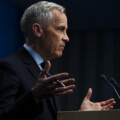
‘Those deficits are almost surely going to rise’: Trevor Tombe on the fiscal challenges facing the Carney government
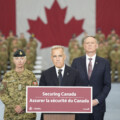
Trevor Tombe: How is Carney going to pay for his commitments? There are some tough choices ahead
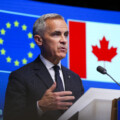
‘He’s a master of globalization in a re-nationalizing world’: Michael Ignatieff on the domestic and geopolitical challenges facing Prime Minister Carney

‘You have to meet bullying with counter-bullying’: David Frum on how Canada can push back against Trump’s trade negotiation tactics
